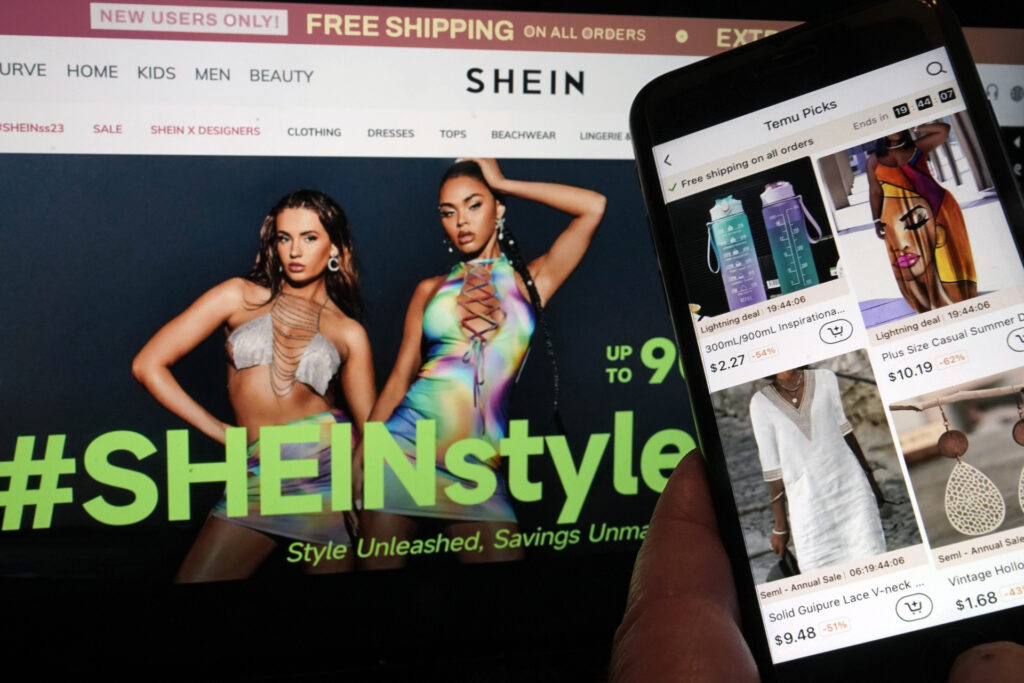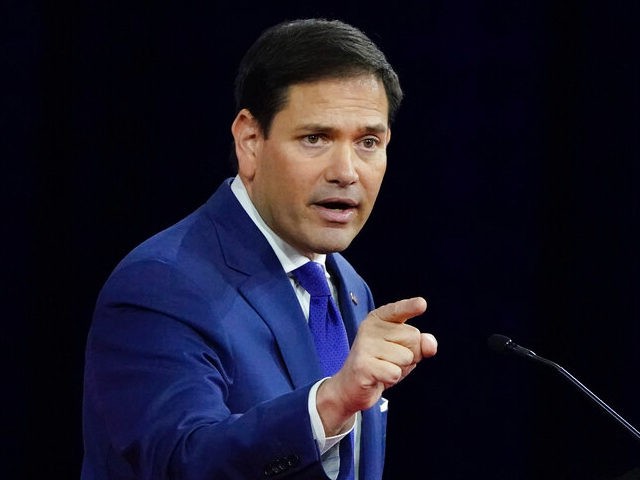Sen. Marco Rubio (R-FL) sent a letter published Tuesday to British Chancellor of the Exchequer Jeremy Hunt urging the UK government not to allow the Chinese “fast fashion” company Shein to list on the London Stock Exchange.
Shein is a Chinese company – with most of its supply chain and business operations based in the country – that sells extremely cheap, poor-quality clothing and accessories online. Shein often uses social media, particularly the Chinese mobile phone app Tiktok, to target young female buyers through both advertising and the use of social media “influencers” to promote their products.
Shein is one of several Chinese companies, the other major competitor in its sphere being the clothing and home goods sites Temu, that sells from China directly to American consumers, cutting importers out of the equation and, in America, using customs loopholes to avoid scrutiny to ensure its supply chain is not tainted by slavery or human rights abuses. Multiple investigations have revealed that Shein has ties to Chinese suppliers exploiting workers and uses cotton sourced from occupied East Turkistan, where the Chinese Communist Party is currently conducting a genocide of the indigenous Uyghur people of the region. One of several genocidal measures the Party has employed is forcing an untold number of Uyghurs and other non-Han peoples into slavery, selling them in “batches” online to factories across the country.
A report published by the House Select Committee on the Chinese Communist Party in June 2023 concluded there was an “extremely high risk” that Shein products were made by slaves.
Despite growing concerns over its ties to the Uyghur genocide, Shein attempted to list its shares in the New York Stock Exchange last year, confidentially seeking approval for an initial public offering (IPO) with the Securities Exchange Commission (SEC). Shein has yet to receive approval in America, but reports this week indicate it is now seeking a similar position in the London Stock Exchange. Sen. Rubio, who led opposition to Shein’s appearance in the American stock market, sent a letter to Hunt on Tuesday discouraging approval for the company in the United Kingdom.
“News reports indicate that SHEIN seeks a stock-market listing in London. SHEIN previously sought to list in New York City, but failed due to concerns about its unethical and irresponsible business practices,” Sen. Rubio wrote. “At the time, I warned U.S. securities regulators about SHEIN’s alleged exploitation of slave labor and trade loopholes. I now feel a duty of friendship to repeat these warnings and urge caution before the United Kingdom allows SHEIN to list in London.”
“In 2022, Bloomberg News commissioned forensic tests of SHEIN garments that showed they were made with cotton from the Xinjiang Uyghur Autonomous Region (XUAR), where slave labor is rampant,” the senator’s letter continued, accusing Shein of attempting to hide its “ties to modern-day slavery.” “XUAR” is the Chinese government’s name for occupied East Turkistan, a former sovereign republic colonized by communist mass murderer Mao Zedong.
“”An expert testified before Congress that SHEIN may also source other fabrics from the XUAR. SHEIN paid for its own forensic tests to rebut these claims. They, too, found Xinjiang cotton in SHEIN’s clothing,” Sen. Rubio recalled.
The senator warned that, as in America, Shein’s ability to exploit “modern-day slavery” gives it unfair advantages over homegrown companies.
“The United States and United Kingdom have many honest businesses that employ workers, import clothing from reputable manufacturers, and pay taxes accordingly,” Sen. Rubio wrote. “SHEIN’s dishonest business threatens honest businesses everywhere.”
“Slave labor, sweatshops, and trade tricks are the dirty secrets behind SHEIN’s success,” the letter concluded. “The United Kingdom has a storied tradition of abolitionism, from Wilberforce and Cowper to the Modern Slavery Act in our day.”

Pages from the Shein website, left, and from the Temu site, right, are shown in this photo, in New York, Friday, June 23, 2023. Online fast-fashion retailer Shein must face the European Union’s strictest level of digital regulations, the bloc said on Friday, April 26, 2024 as it added the company to its list of big platforms that need extra scrutiny. (AP Photo/Richard Drew, File)
The finance magazine Forbes, citing the British Sky News, reported on June 4 that Shein CEO Donald Tang met with Hunt recently seeking approval for a British IPO, following the stalling of its attempts in the United States. Some reports indicate that Shein’s connections to the Chinese Communist Party, the accusations of slave labor, and ongoing litigation accusing the company of racketeering are to blame for the lack of progress on the American IPO.
“The company finds itself — despite having hired the most connected bankers and lobbyists in Washington — completely shut out from the US. They literally can’t even get the SEC to reply to its emails,” the Financial Times‘ Eleanor Olcott said on Tuesday.
The Forbes report stated, however, that the hurdle is that the SEC asked Shein to make a public IPO filing, rather than a confidential one, and Shein has not done so.
Following reports in November that Shein had sought a confidential IPO filing, Sen. Rubio, writing to the head of the SEC, noted reports that the company had to ask the Chinese government for permission to do so.
“News reports indicate that SHEIN approached regulators in the People’s Republic of China (PRC) to gain approval of its IPO,” Sen. Rubio wrote. “This revelation makes virtually certain that the Chinese government will censor SHEIN’s filing documents to hide pertinent information from U.S. regulators and investors about the extent and nature of its operations in the PRC, as well as the risks of doing business in the PRC.”
Pushback to Shein’s expansion follows a dramatic boom in its finances. Shein rose to become the world’s largest online-only fashion vendor in 2022 and, as of 2023, was the company responsible for the largest share of “fast fashion” sales in America.
Its growing popularity has not protected it from scrutiny – or, in some cases, mockery. In its season finale in May, Saturday Night Live parodied advertising by both Shein and Temu in a sketch referencing the Uyghur genocide and Chinese slavery.
In April, the human rights group Justice for All called for Muslims to boycott Shein in solidarity with the Uyghur people to mark the end of Ramadan, Eid al-Fitr, lamenting that Shein profits handsomely from selling Islamic garb.
“It is disappointing to see thousands of Muslim women and girls buy jilbabs from Shein despite widespread knowledge of their use of Uyghur forced labor,” the group said in a statement.
Follow Frances Martel on Facebook and Twitter.

COMMENTS
Please let us know if you're having issues with commenting.